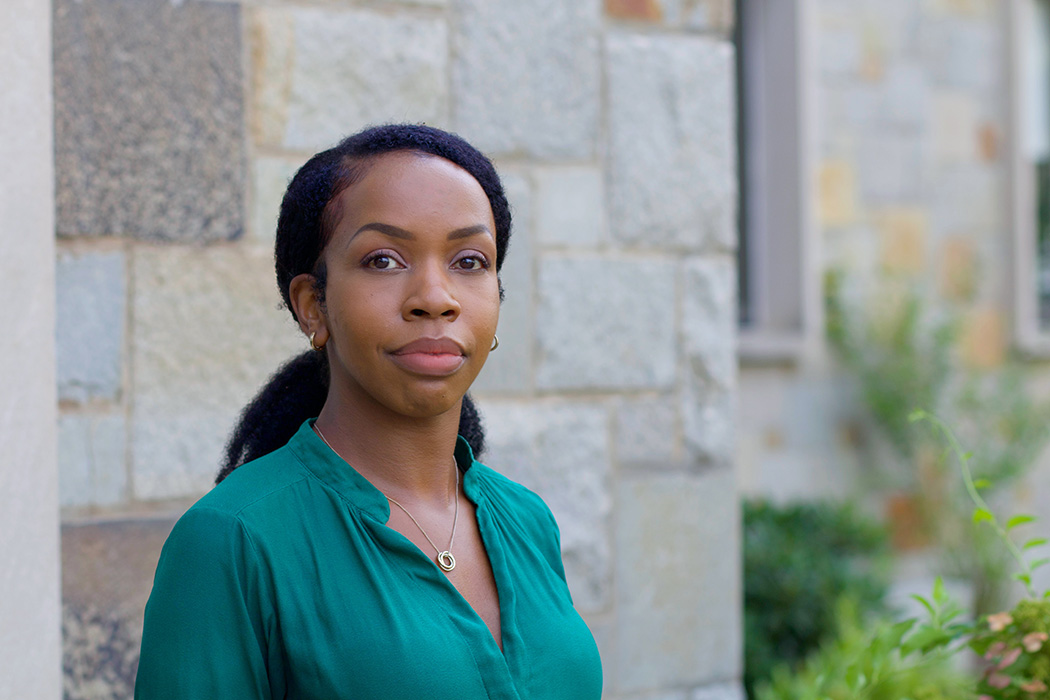
Whitney Irie. Photo by Taylor Morales.
Whitney Irie, an assistant professor at the Boston College School of Social Work, says her primary research goal is to improve, promote, and protect the sexual and reproductive health of Black women in the U.S.
As she puts it: “My passion for advancing health equity, especially for Black women, drives everything I do.”
We asked Irie to discuss her latest research, her strategies for keeping herself grounded, and the power she finds in aligning her personal interests with her professional ambitions.
Can you tell us a little bit about the research you are currently working on?
Right now, I’m leading a study called LinkHER, which focuses on rapid linkage to PrEP for cisgender women who receive a bacterial STI diagnosis in OB/GYN settings. [PrEP, or pre-exposure prophylaxis, is a medicine that reduces the chances of getting HIV from sex and intravenous drug use]. The aim is to bridge the gap between STI care and PrEP initiation, especially for Black women. By centering on their needs and preferences, we are co-developing a navigator intervention that makes PrEP more accessible within clinical settings that many women already trust for their sexual health care. It’s an exciting opportunity to address the unique barriers to PrEP engagement, such as low HIV risk perception, and make a meaningful impact on HIV prevention.
How important is user experience when developing assessment tools?
User experience is essential. When tools are intuitive and culturally responsive, they are more likely to be used effectively. In our LinkHER study, we’re ensuring that the intervention materials and navigator training are co-developed with input from the community, which ensures that we’re not only creating a useful intervention but one that resonates with the people it aims to serve.
How do you take care of yourself and recharge outside of work?
I love to spend time with my daughters, run, and explore creative outlets like water painting. On weekends, you can often find me relaxing with my husband, listening to vintage reggae vinyls. These activities help me stay balanced and grounded.
Do you find that research is more impactful when it aligns with your personal interests and passions?
Absolutely. My passion for advancing health equity, especially for Black women, drives everything I do. Research feels more meaningful when it aligns with that mission. Through implementation science and initiatives like LinkHER, I can directly address disparities in healthcare and make strides toward systemic change.


